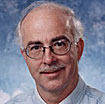Commentary on Psalm 49:1-12
As Brueggemann and Bellinger say about Psalm 49, “The psalm is particularly important and surely pertinent in a contemporary society that is ‘rich in things and poor in soul.’”1 As they suggest, Psalm 49 has something to teach us. We shall return to the lesson(s) to be learned, but note at the outset that Psalm 49 intends to teach. Verses 1–4 are full of the vocabulary of Israel’s wisdom tradition: “wisdom,” “understanding,” “proverb,” “riddle” (see Proverbs 1:2–7). It is clear why Psalm 49 is categorized as a wisdom psalm. Whether it was a part of Israelite/Judean worship is unclear, although the mention of “the music of the harp” makes this a possibility (see Psalms 33:2; 150:3). What are the lessons to be learned?
We are mortal
The most obvious lesson is that everyone—wise or foolish, rich or poor—will die. Verses 5–12 make this point, and it is reinforced in verses 13–20, which are not included in the lection. Verse 12 summarizes the lesson: “Mortals … are like the animals that perish.” In fact, we can infer that this line may reveal the riddle (verse 4) underlying the psalm: How are humans and animals alike?
This lesson is not unique to Psalm 49. Ecclesiastes, another product of the wisdom tradition, makes the same point (see Ecclesiastes 2:14–23; 3:18–22), as does Psalm 90 (see especially verses 3–6, 9–10). The reality of mortality is sobering, but it is not necessarily an occasion for despair. In Psalm 90, the reality of mortality draws the psalmist more fully into life: “So teach us to count our days that we may gain a wise heart” or, better translated, “So teach us to make each day count …” The same can be said of Ecclesiastes, who, in the final analysis, invites his student to live fully and faithfully within their allotted time (see 2:24–26; 3:22; 5:18–20; 12:13–14). As for the psalmist of Psalm 49, who is the impoverished victim of wealthy oppressors (verses 5–6), they may derive some comfort from the fact that their wealthy opponents will die and cannot take their riches with them (see verse 17). But this could be cold comfort, for the psalmist will die too!
So, what is the advantage of the faithful? It seems to be that they accept their mortality and entrust life and future to God (verse 15), whereas the wealthy opponents seek to deny their mortality and to compensate by acquiring more riches, even at the expense of the psalmist and others in the psalmist’s position. From this perspective, the issue becomes one of trust (see verse 6).
Trusting God or trusting self and wealth
In the Sermon on the Mount, Jesus says, “No one can serve two masters; … You cannot serve God and wealth” (Matthew 6:24). This verse clarifies the issue in Psalm 49. The psalmist’s opponents serve wealth; they “trust in their wealth and boast of the abundance of their riches” (verse 6). In short, they trust themselves, and they fail to trust God. So they have no qualms about getting ahead by persecuting the psalmist (verse 5), possibly even blaming the impoverished psalmist for being poor while congratulating themselves that God has blessed them—an ancient form of the Prosperity Gospel, perhaps?
What sets the psalmist apart is that they trust God. That the psalmist trusts God, rather than self or wealth, is evident in verse 15, even though it is not clear exactly what is meant by the affirmation that God “will receive me” (see Genesis 5:24; 2 Kings 2:1–12; Psalm 73:24). In any case, this trust in God enables the psalmist not to fear (or envy perhaps) the wealthy (verse 5; see also verse 16).
The final verse of the psalm also suggests the difference between the psalmist and the wealthy opponents. The Hebrew of verse 19 differs slightly from that of verse 12. The New Revised Standard Version translates the two verses identically, but the New International Version captures the difference: “A man who has riches without understanding is like the beasts that perish” (emphasis added).
All will die, but the significance of death will differ. Those who trust themselves and their wealth die without understanding, like the beasts. The implication is that the psalmist and all the faithful die with understanding, unlike the beasts in the final analysis; that is, they die trusting God and entrusting life and future to God (verse 15). The implication, too, is that this manner of dying will affect one’s living—that is, one will live wisely and faithfully, knowing that life consists of serving neither wealth nor self, and thus refusing to exploit and oppress others for one’s own benefit.
Back to contemporary society
James L. Mays suggests that Jesus had Psalm 49 in mind when he taught about truly saving one’s life: “For what will it profit them to gain the whole world and forfeit their life? Indeed, what can they give in return for their life?” (Mark 8:36–37).2 Jesus could also have had Psalm 49 in mind when he said, “How hard it will be for those who have wealth to enter the kingdom of God!” (Mark 10:23), and when he told the parable of the rich fool (Luke 12:13–21).
I suspect that most readers of this essay live in and benefit from perhaps the wealthiest society in the history of humankind, and wealth easily distracts us. It’s easy for greed to become routine, even virtuous. It’s easy to idolize wealth and the wealthy, and to conclude that life does indeed consist in the abundance of our possessions (see Luke 12:15). It’s easy to overlook the way our wealth is attained at other people’s expense. It’s easy to trust ourselves and our wealth instead of trusting God. We need to hear the lessons of Psalm 49 that Jesus incorporated into the proclamation of the good news of God’s realm.
Notes
- Walter Brueggemann and William H. Bellinger Jr., Psalms, New Cambridge Bible Commentary (Cambridge University Press, 2014), 229.
- James L. Mays, Psalms, Interpretation (John Knox, 1994), 191.


July 31, 2022